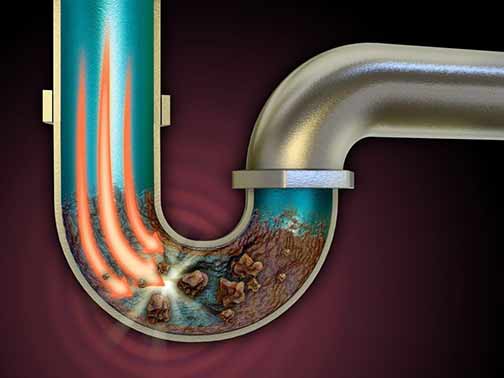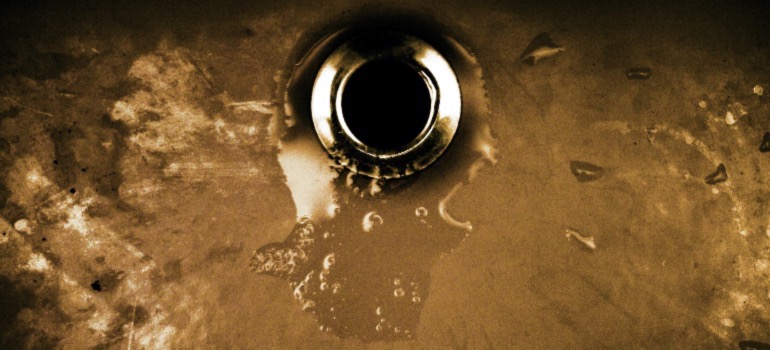
As homeowners, we rely on our plumbing systems to adequately remove wastewater from our homes. However, during a heavy rainstorm, some homeowners in Chicago may experience the frustrating issue of drains backing up. This can lead to water damage, foul odors, and inconvenience. Here we explain the reasons behind drain backups during rainstorms and discuss possible solutions.
Understanding Drain Backups
Before delving into the reasons for drain backups during rainstorms, it is important to have a basic understanding of how the plumbing system works. The plumbing system in a house relies on gravity to direct wastewater away from the house and into the city sewer system or a septic tank.
When you flush a toilet or use a sink, the wastewater travels through a network of pipes into larger main sewer lines. These main lines then transport the wastewater to a treatment facility or a septic tank. However, when drains back up during a rainstorm, it indicates that there is a disruption in this normal flow.
Common Causes of Drain Backups During Rainstorms
There are several reasons why drains may back up during rainstorms. The most common causes include:
- Excessive rainwater: Heavy rainstorms can overwhelm the capacity of the drainage system, especially if it is outdated or poorly designed. When the volume of rainwater exceeds the system’s capacity, water can flow backward through pipes and cause backups in lower-lying drains.
- Sewer line obstructions: Over time, debris, roots, sediment, and other materials can accumulate in sewer lines, narrowing the passage for wastewater flow. During a rainstorm, when water tries to exit the home but encounters an obstruction in the sewer line, it can cause the drains to back up.
- Inadequate venting: Every plumbing system requires proper venting to allow air to enter the pipes and prevent vacuum conditions. Without adequate venting, the negative pressure created during heavy rain can cause a siphoning effect, leading to drain backups.
- Issues with the drainage slope: Drainage systems are designed with a slope to ensure that wastewater flows freely. However, over time, settlement or shifting of the ground can alter the slope, hindering proper drainage. This can result in backups during rainstorms.
- Combined sewer system overflow: In some areas, including parts of Chicago, homes are connected to a combined sewer system. This means that stormwater and wastewater share the same set of pipes. During heavy rainstorms, when the system becomes overloaded, excess water can back up into drains and cause backups.

When faced with drain backups during rainstorms, it is crucial to take immediate action to prevent further damage and address the underlying issues.
Solutions and Preventative Measures
When faced with drain backups during rainstorms, it is crucial to take immediate action to prevent further damage and address the underlying issues. Here are some solutions and preventative measures that Chicago Plumbing Experts recommend:
Regular maintenance: Regular maintenance of your plumbing system, including a sewer line camera inspection and cleaning, can help prevent future drain backups. A professional plumber can identify potential issues and rectify them before they turn into costly problems.
Upgrading drainage systems: If you live in an older home with outdated drainage systems, consider upgrading to a more efficient system. A new system will have a better capacity to handle heavy rainstorms, reducing the likelihood of backups.
Installation of backflow valves: A backflow valve is installed in your sewer line to prevent wastewater from flowing back into your drains. These valves automatically close when water begins to flow in the wrong direction, effectively preventing backups during rainstorms.
Proper venting: Ensuring that your plumbing system has adequate venting is crucial to prevent negative pressure and siphoning effects. A qualified plumber can evaluate your venting system and make any necessary adjustments or additions.
Landscape management: If your property has trees or shrubs near your sewer lines, their roots can intrude and cause blockages. Regularly maintaining and trimming these plants can help prevent root intrusion and subsequent drain backups.
Limit water usage during rainstorms: During heavy rainstorms, it is advisable to limit water usage in your household. Reduce showers, laundry, and running faucets to alleviate any additional strain on the drainage system.
In Summary
Drains backing up during rainstorms can be a frustrating and inconvenient problem for homeowners in Chicago. Understanding the reasons behind these backups and taking preventative measures can help mitigate the risk of future incidents. Speaking with professional plumbing experts and implementing appropriate solutions can ensure a properly functioning plumbing system, even during heavy rainstorms.
Remember, if you experience persistent drain backups during rainstorms, it is always best to seek the advice of a professional drain cleaning provider who can identify the exact cause and provide tailored solutions for your specific situation.